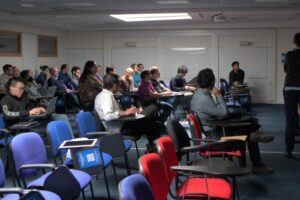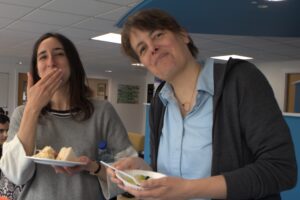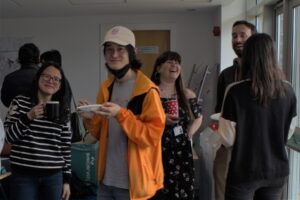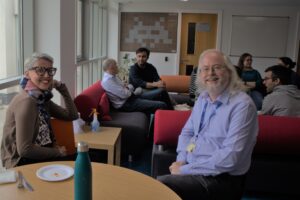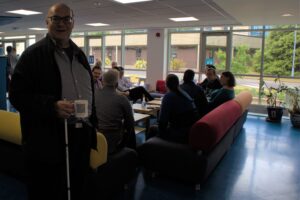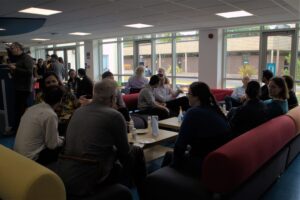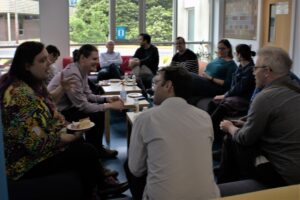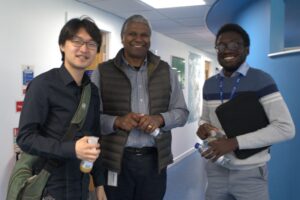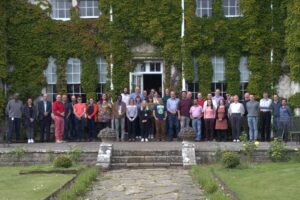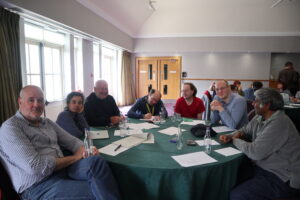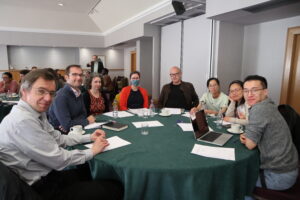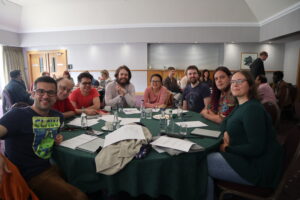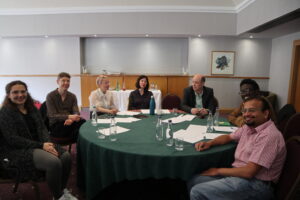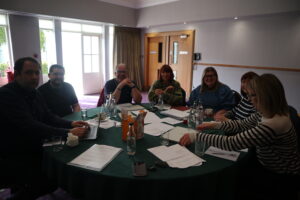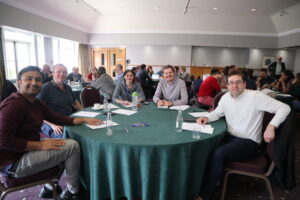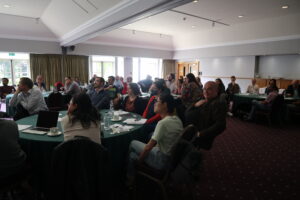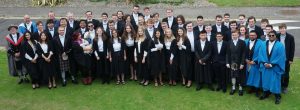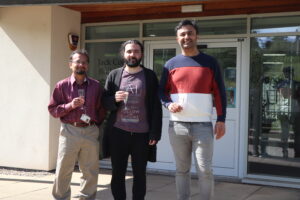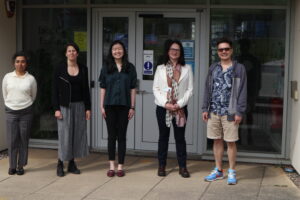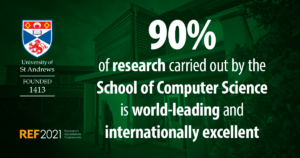CS Staff Away Day 2022
Seminar Talk from a SICSA visitor (Daniel Garijo) Friday 10 June, 11.00am
Accelerating Research Software Understandability Through Knowledge Capture
Summary: Research Software is key to understand, reproduce and reuse existing work in many disciplines, ranging from Geosciences to Astronomy or Artificial Intelligence. However, research software is usually difficult to find, reuse, compare and understand due to its disconnected documentation (dispersed in manuals, readme files, web sites, and code comments) and a lack of structured metadata to describe it. These problems affect not only researchers, but also students who aim to compare published findings and policy makers seeking clarity on a scientific result. In this talk I will present the main research challenges and our recent efforts towards facilitating software understanding by automatically capturing Knowledge Graphs from software documentation and code.
Short bio: Dr. Daniel Garijo Verdejo is a Distinguished Researcher at the Ontology Engineering Group of Universidad Politécnica de Madrid (UPM). Previously, he held a Research Computer Scientist position at the Information Sciences Institute of the University of Southern California, in Los Angeles. Daniel’s research activities focus on e-Science and Knowledge Capture, specifically on how to increase the understandability of research software and scientific workflows by creating Knowledge Graph from their documentation and provenance (i.e., steps, outputs, inputs, intermediate results).
For this talk we will use a hybrid approach: In person (Jack Cole, 1.33) and online, via Teams.
If you wish to attend it would be helpful if you could register on eventbrite to let us know if you intend to attend in person or online
All Welcome!
Graduation Reception
The School of Computer Science will host a graduation reception at Beacons Bar in the students Union on Wednesday 15th June between 10:00 – 13.00.
Graduating students and their guests are invited to come along and celebrate with a glass of bubbly.
Computer Science degrees will be conferred in an afternoon ceremony in the Younger Hall. Family and friends who can’t make it on the day can watch a live broadcast of graduation.
PhD viva success: Gökberk Koçak
PhD viva success: Janis Wong
REF Results
We’re delighted that the world-leading quality of our research has been recognised in the 2021 Research Excellence Framework.
Congratulations to all members of our School!
More Information on CS Ref results can be found on our Research page
Systems Research Group seminars
The Systems Research Group is re-starting their seminars series from 6th May 2022. Seminars will take place every two weeks at 1pm, on Fridays. From May to July the seminars will be online (SRG Teams), while from September onward we aim to move them to a hybrid format. More information on the schedule can be found on the seminars page of the Systems Research Group site.
Congratulations Tristan!
Congratulations to Tristan who has won Outstanding Dissertation, Thesis, or Project Supervisor at this years Students’ Association Teaching Awards.
This award recognizes excellent guidance and support offered by a staff member during a student learning or research project, including postgraduate research, postgraduate taught, and undergraduate dissertations/theses.
Since 2009/10, the Students’ Association has organised the Teaching Awards to recognise the excellent teaching that happens in St Andrews. The awards aim to identify best practice throughout the University and give students the opportunity to thank the individuals who helped to shape their learning experience.
Congratulations also goes to Tom Spink who was nominated for the Outstanding teacher (Science and Medicine) and Chris Jefferson who was nominated for Outstanding Innovation in Teaching
Well Done!
PhD viva success: Ryo Yanagida
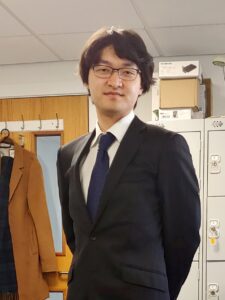 Congratulations Ryo on passing your Viva!
Congratulations Ryo on passing your Viva!
Mobility Multihoming Duality for the Internet Protocol
In the current Internet, mobile devices with multiple connectivity are becoming increasingly common; however, the Internet protocol itself has not evolved accordingly. Instead, add-on mechanisms have emerged, but they do not integrate well. Currently, the user suffers from disruption to communication on the end-host as the physical network connectivity changes. This is because the IP address changes when the point of attachment changes, breaking the transport layer end-to-end state. Furthermore, while a device can be connected to multiple networks simultaneously, the use of IP addresses prevents end-hosts from leveraging multiple network interfaces — a feature known as host multihoming, which can potentially improve the throughput or reliability. While solutions exist separately for mobility and multihoming, it is not possible to use them as a harmonised solution for the end-host.
This work extended ILNPv6, an engineering solution of Identifier Locator Network Protocol (ILNP) implemented as a superset of IPv6 on the Linux kernel. The existing implementation was extended to harmonise mobility and multihoming. First, the mobility implementation was en- hanced to support rapid and continuous mobility; a comparative analysis against MIPv6 showed superior performance during high rate of handoffs. Second, multihoming was implemented and integrated with mobility; the evaluation with a flexible multi-connectivity scenario with load-balancing showed negligible loss and consistent throughput. Finally, the impact of the combined mobility-multihoming mechanism was evaluated with a real-time video stream application showing continuous uninterrupted real-time video playback at 2160p (4k ultra high definition). Overall, this work has demonstrated that mobility-multihoming duality is possible for end-hosts over IPv6 for existing applications without changing the network infrastructure.
Supervised by Prof. Saleem Bhatti with Dr Tristan Henderson as second Supervisor.
Thank you to the external examiner Prof. Mahesh Marina from the University of Edinburgh and Internal examiner Prof. Simon Dobson.
The viva took place on Microsoft Teams on 7/03/2022.


